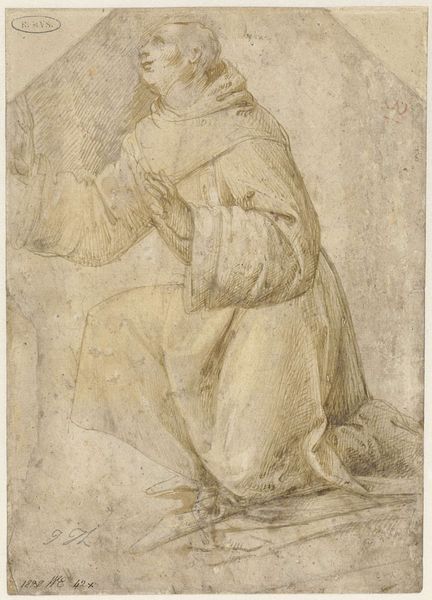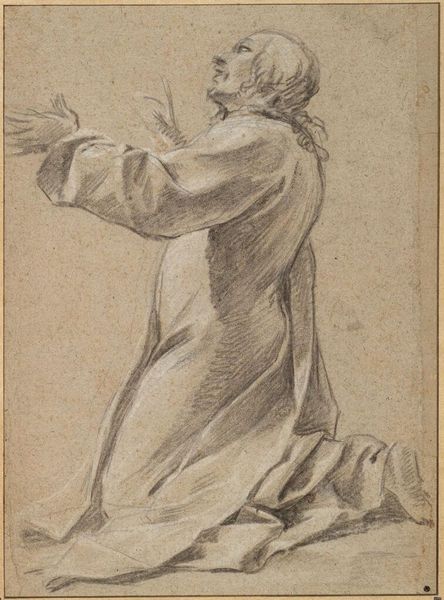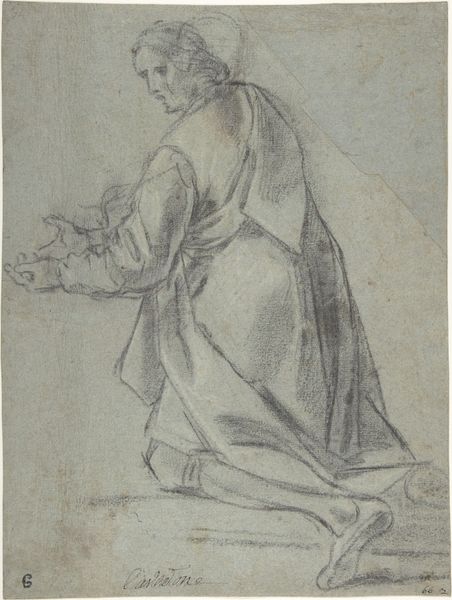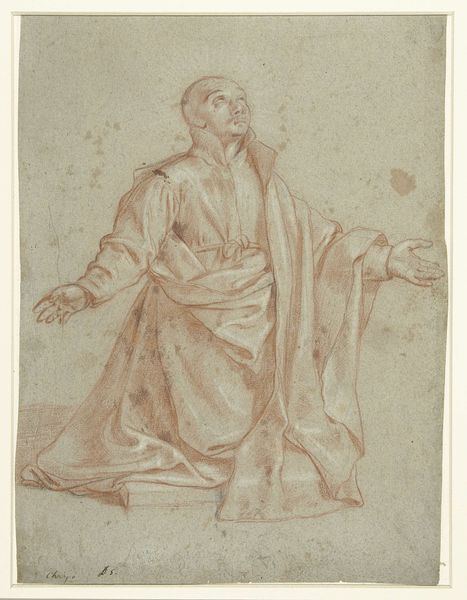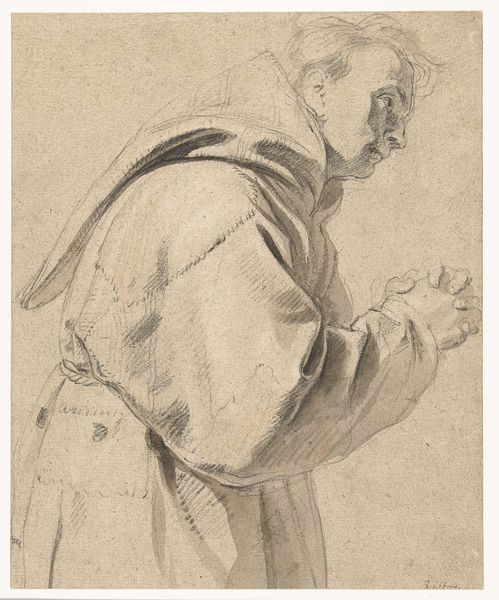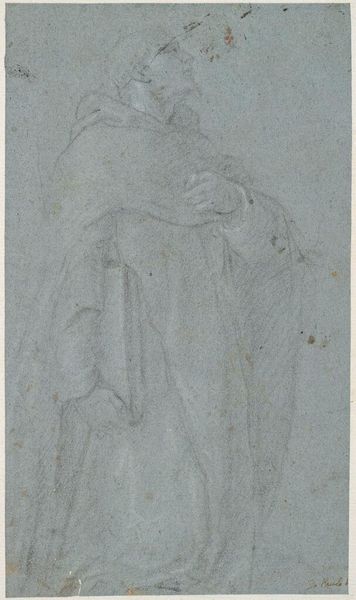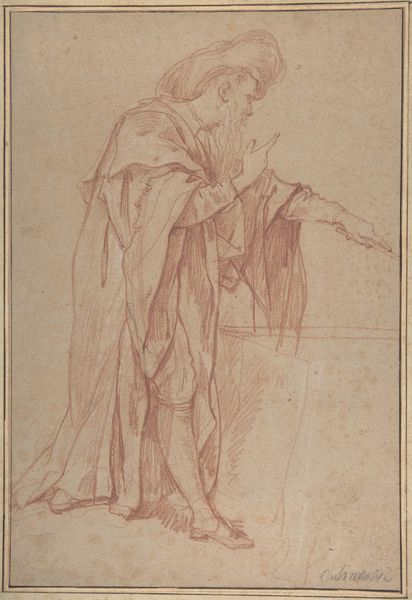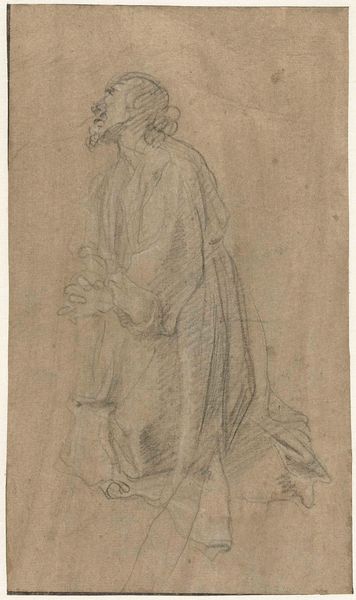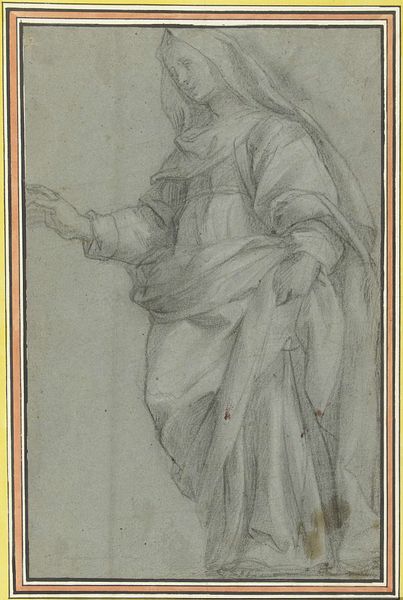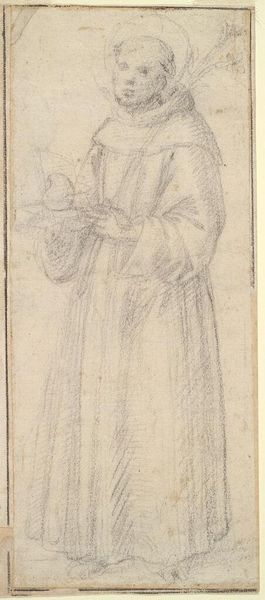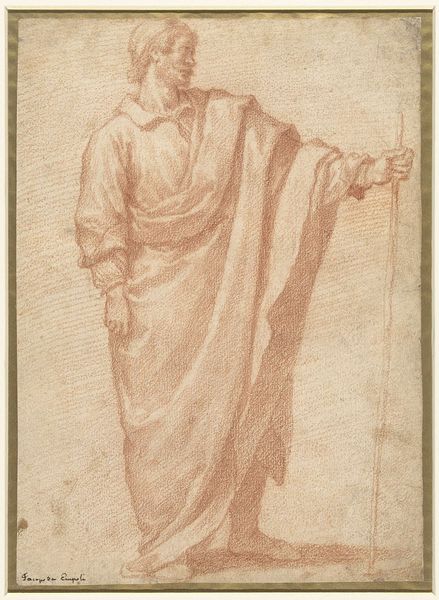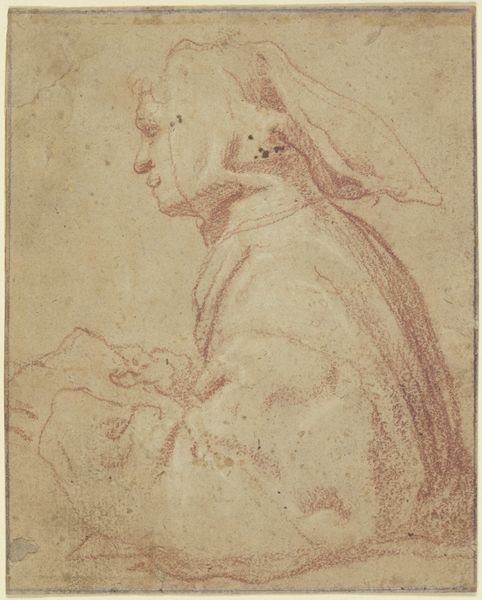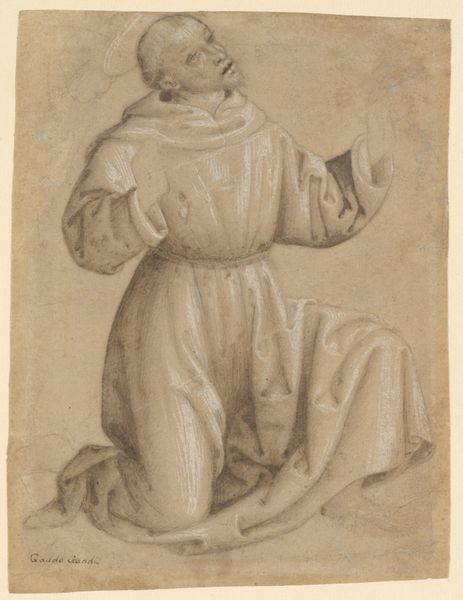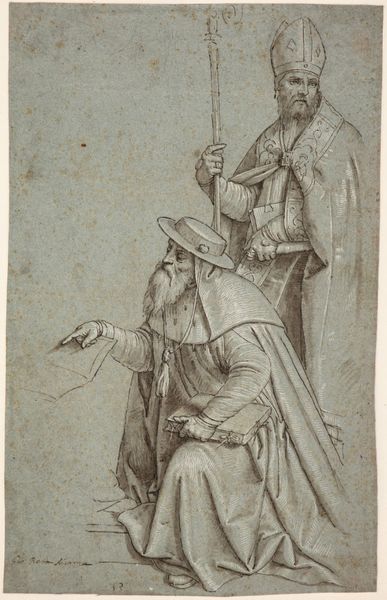
drawing, pencil, charcoal
#
portrait
#
drawing
#
baroque
#
pencil sketch
#
figuration
#
pencil
#
charcoal
Dimensions: height 221 mm, width 157 mm
Copyright: Rijks Museum: Open Domain
Abraham van Diepenbeeck created this study of a kneeling monk in pencil sometime in the 17th century. We see the monk in a moment of devotion, his hands raised in supplication, his face etched with what could be anguish. The Dutch Republic in which Van Diepenbeeck lived was a place of religious upheaval. Though predominantly Calvinist, it contained a mix of Catholics, Anabaptists, and other Protestant sects. Visual culture played a key role in these conflicts. The Catholic Counter-Reformation emphasized emotional and dramatic imagery. The question is: Was Van Diepenbeeck, who worked for both Catholic and Protestant patrons, leaning towards this more emotive style? To understand this drawing, we can look at the artist's other works, his patrons, and the broader religious and political context of the Dutch Golden Age. Through such research, we can better understand how art reflects and shapes its world.
Comments
No comments
Be the first to comment and join the conversation on the ultimate creative platform.
